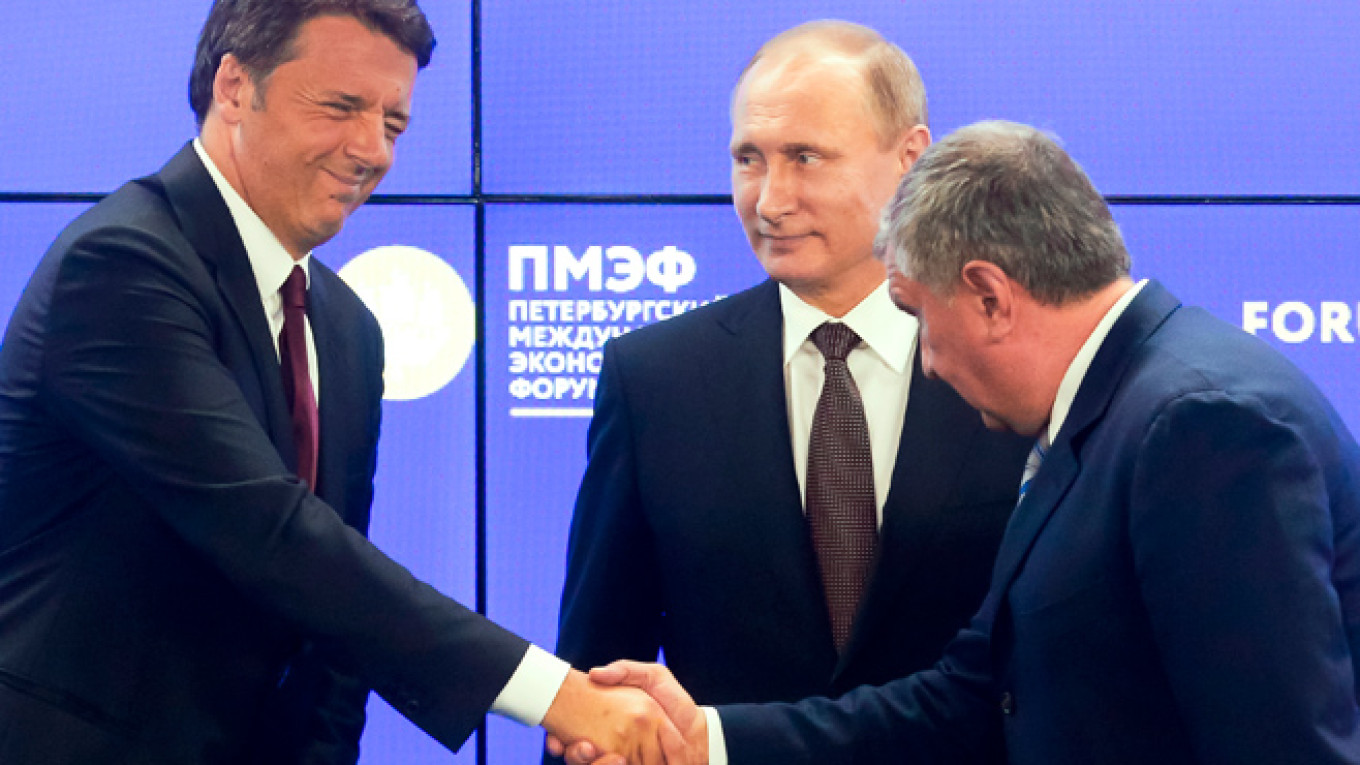Russia has an image problem. Whether it's doping in sport, soldiers in Ukraine or corruption in the Kremlin, every new headline seems to bolster a negative stereotype.
And it's a costly problem to have. It makes other governments suspicious and defensive, and it often makes business steer clear. When the stereotypes run deep, they are hard to shake off.
So every now and again, Moscow tries offering a more positive face. One of its key tools in this effort is the annual St. Petersburg International Economic Forum, which this year ran from June 16-18. Here, for a couple of days, a few thousand foreign business people, journalists and officials are shown an assiduously designed model version of the country.
The aim is to soften attitudes to Russia and to drum up investment. All in all, it's a fine-tuned, effective spectacle. By the time the forum ends, many delegates have had their impressions of Russia turned upside down.
One of the first-time visitors to the forum this year was Kitty Parry, a British entrepreneur in her thirties. The forum organizers sent three smiling faces to welcome her at the airport and whisk her into St. Petersburg. She says she found the city, peppered with canals and palaces, "breathtaking."
Parry's impressions further improved when she arrived at the forum, which this year had moved from its former home in a drab Soviet-era exhibition center to a vast and shiny new complex rising out of green fields on the city fringes.
Parry, whose company, Social Media Compliance, helps businesses and regulators to use social networks safely, mixed with executives from banks and payment providers. She found them full of warmth and ideas. "I'm impressed by how much innovation is going on in Russia," she says. The confidence in the atmosphere made her confident. She hopes to quickly turn her new contacts into new work.
Everything around her at the forum broadcast a success story. Glossy stands showed off companies, media outlets and Russian regions. A robot answered questions about banking products at the stall of Russia's largest lender, Sberbank. A few steps away, a miniature model of Russia's Vostochny Cosmodrome spewed smoke in simulated rocket launches.
The annexed Crimean Peninsula was also woven into the spectacle. At one stand, pretty young women offered virtual reality helicopter tours of the multi-billion-dollar Kerch bridge project to link the peninsula to the Russian mainland. Another stall solicited investment in Crimean factories and racing tracks.
Meanwhile, in panel discussions, officials and business people exchanged frank diagnoses of Russia's economic problems and ideas to solve them.
Parry wasn't the only one impressed. Peter Brabeck-Letmathe, chairman of Nestle, emerged from a breakfast at which liberal officials, communist politicians and price-controlling economists good-naturedly exchanged views over coffee and croissants. Russia is often portrayed as a brittle fiefdom of President Vladimir Putin; for Brabeck-Letmathe, the open debate was instead "a sign of openness, strength and transparency," and the new venue a demonstration of confidence.
Not even the reality of sanctions was able to depress the mood. European Union leaders may have approved a six-month extension to the restrictions, but at the forum the sanctions were made to appear illogical and impermanent. Russian officials found obvious commonality with their business guests in wanting to see the return of full-trading relations.
Fyodor Lukyanov, a well-connected analyst, summarized the sentiment: "Demolition [of sanctions] begins in 2017," he said.
The attendance at the forum of European Commission head Jean-Claude Juncker and Italian Prime Minister Matteo Renzi only bolstered that impression. Both were clear that sanctions would not end without a resolution of the situation in Ukraine. But their presence sent a different subliminal message.
"It's all a question of perceptions," says Frank Schauff, head of the Association of European Businesses in Russia. More Europeans attended the forum than in recent years, he said. They were also "more engaged" and their mood noticeably brighter.
However, image management only takes you so far. After leaving the forum, one European businessperson in St. Petersburg for the first time was careful enough to check their positive impressions against the experience of acquaintances who had already done business in Russia.
These acquaintances urged caution — Russian clients had tried to cheat them by delaying and avoiding payments. The businessperson duly adjusted their assessment. They decided to still do business here. "But," they said, "I will probably insist on payments up front."
Contact the author at p.hobson@imedia.ru. Follow the author on Twitter at @peterhobson15


